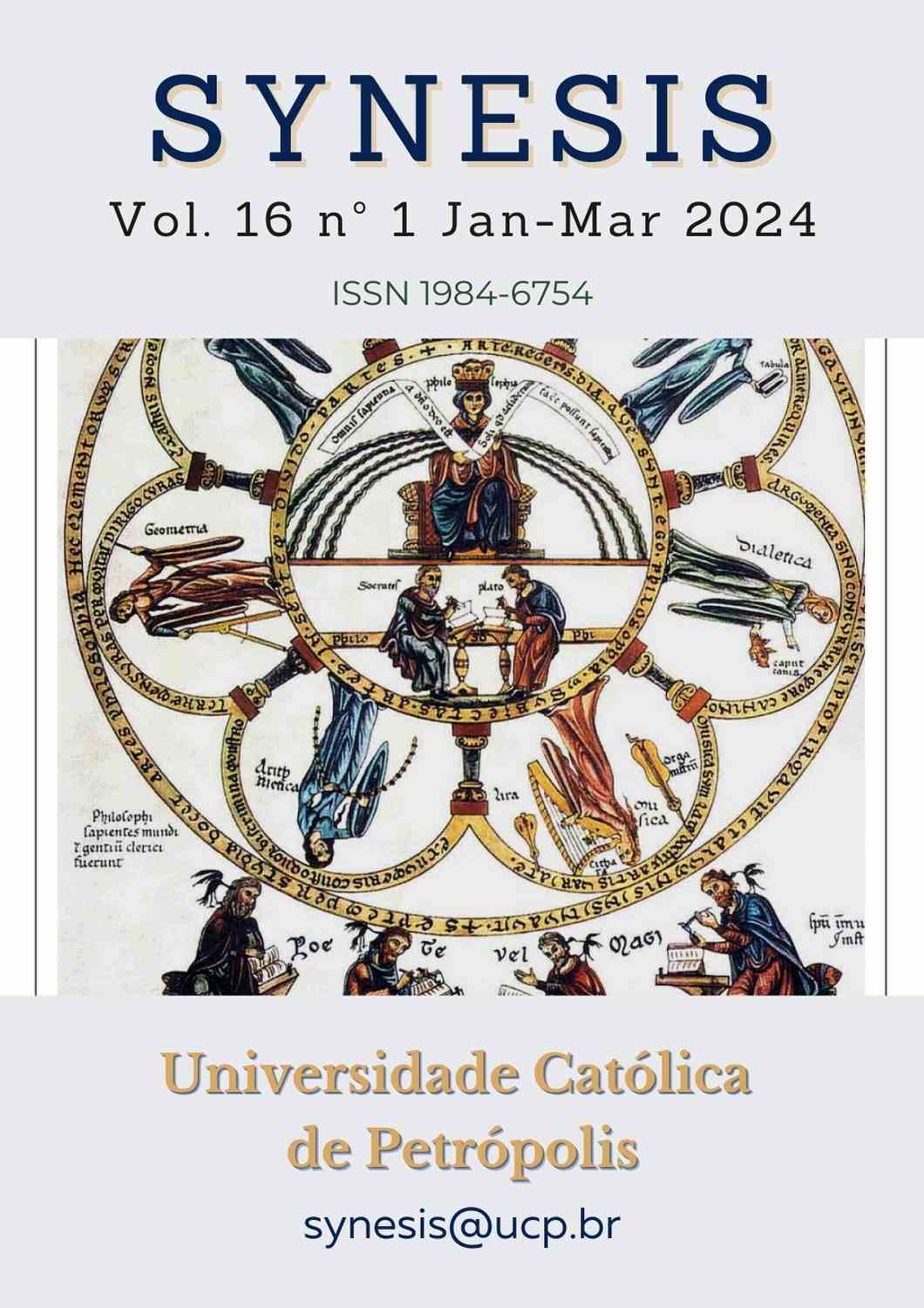Resumo
As diferentes abordagens da linguística para o estudo do folclore possibilitam apresentar esse fenômeno como um sistema complexo e em constante mudança. Portanto, é essencial interpretar o folclore do ponto de vista cognitivo, da linguística comunicativa e dos estudos linguoculturais. O artigo tem como objetivo estabelecer o conteúdo e as direções da pesquisa sobre folclore na linguística moderna. É dada atenção especial ao conceito de folclore, à semiótica linguística e ao estudo da tradição do folclore francês. A metodologia de pesquisa baseia-se em uma abordagem integrada. Os principais são o método descritivo usado para descrever os aspectos teóricos do estudo, bem como os métodos comparativo e contrastivo para estudar o discurso folclórico e sua representação nos textos do folclore francês. A hipótese do estudo pressupõe que o folclore, como objeto de pesquisa linguística, é um fenômeno diverso e multifacetado, apresentado como um conceito cultural, um sistema de oposições e paradigmas que transforma a ideia em dimensões diacrônicas e sincrônicas. Isso resultou no estabelecimento dos limites terminológicos do conceito de "folclore" nas práticas de pesquisa. O artigo identificou uma série de áreas promissoras de pesquisa sobre textos do folclore francês. Um estudo mais aprofundado sobre a sistematização do conhecimento linguístico relacionado ao estudo de textos folclóricos, as peculiaridades do folclore francês e as perspectivas para o desenvolvimento do conceito de folclore continuam promissores.
Referências
Bazarbayeva, Z. M., Chukayeva, T. (2021). Folkloric discourse as an object of philological research. The Bulletin of National Academy of Sciences of the Republic of Kazakhstan, 3(91), 190–195. Available at: https://doi.org/10.32014/2021.2518-1467.120
Berthou-Bécam, L., Bécam, D. (2010). L’ enquête Fortoul (1852-1876): chansons populaires de Haute et Basse-Bretagne. Rennes: Dastum, 1139 p.
Betsenko, T. (2015). Linguistic folklore as a new direction of philological science. Mythology and folklore, 3(4), 108–117.
Currie, O. (2021). Présenter aux lecteurs français la littérature orale telle qu’elle sortait de la bouche des paysans: Zbiranje slovstvene folklore in status regionalnih jezikov v Franciji v 19. stoletju. Vestnik Za Tuje Jezike, 13(1), 243–260. Available at: https://doi.org/10.4312/vestnik.13.243-260
Dovhan, O. (2011). Language creativity of Ukrainian translators of children's literature of the second half of the 20th century – the beginning of the 21st century. National Pedagogical University named after M. P. Drahomanov, p. 19.
Fried, M. (2010). Constructions and Frames as Interpretive Clues. Belgian Journal of Linguistics, 24, 83–102.
Haase, D. (2019). Global or local? Where do fairy tales belong? Andrew Teverson, (ed.), The Fairy Tale World. Abingdon, Oxon.: Routledge, pp. 17–32.
Hopkin, D. (2019). Regionalism and folklore. Xosé M. Núñez Seixas/Eric Storm (eds.), Regionalism and Modern Europe: Identity Construction and Movements from 1890 to the Present Day London: Bloomsbury Academic, pp. 43–64. Available at: https://doi.org/10.1093/acprof:oso/9780199290802.001.0001
Lakoff, G. (1993). The contemporary theory of metaphor. Metaphor and thought, Cambridge, 245 p.
Langacker, R. W. (1999). Grammar and Conceptualization. Berlin and New York: Mouton de Gruyter, 427 р.
Lemmens, M. (2015). Cognitive semantics. Routledge Handbook of Semantics, London & New York: Routledge, 90–105.
Levinson, S. (2003). Space in Language and Cognition: Explorations in Cognitive Diversity. Cambridge: Cambridge University Press. 389 р. Available at: https://doi.org/10.1017/CBO9780511613609
Lisova, Y., Kostusiak, N., Shulska, N., Yaresko, K., Ivanova, I., Pochuieva, O., Afanasieva, O. (2023). Language verbalization of quantitativeness in modern mass media: linguistic-cognitive and communicative-pragmatic dimensions in Ukrainian language. AD ALTA: Journal of Interdisciplinary Research, 13(1), 149–155.
Marabyan, K. (2016). French folklore texts as an object of linguosemiotic research. Scientific Bulletin of Uzhgorod University. Series: Philology, (35), 68–71.
Mélonio, F. (2001). Naissance et affirmation d’une culture nationale: la France de 1815 à 1880. Paris: Seuil.
Noyes, D. (2003). Eight Words for the Study of Expressive Culture, Group. In Feintuch, Burt (ed.). University of Illinois Press., 7–41.
Perek, F. (2015). Argument structure in usage-based construction grammar. Experimental and corpus-based perspectives. Amsterdam/Philadelphia: Benjamins, 256 р.
Sébillot, P. (1886). Le Folk-lore, les traditions populaires et l’ethnographie légendaire. Revue Anthropolgie, 1, 290–302.
Synorub, H., Medynska, O. (2019). Development of information culture of students of humanitarian specialities. Information Technologies and Learning Tools, 72(4), 152–167. Available at: https:// doi.org/10.33407/itlt.v72i4.2922
Sytar, H. (2015). Constructive grammar as a theoretical basis for the study of phraseological sentences”. Typology and functions of language units, 2(4), 192–205. Available at: https://evnuir.vnu.edu.ua/bitstream/123456789/7092/1/192-205.pdf
Takimoto, M. (2020). Investigating the effects of cognitive linguistic approach in developing EFL learners’ pragmatic proficiency. System, 89, 102–213. Available at: https://doi.org/10.1016/j.system.2020.102213
Taylor, J. R. (2012). The Mental Corpus: How Language is Represented in the Mind. Oxford: Oxford University Press, 384 р.
Tendahl, M., Gibbs, R. (2008). Complementary perspectives on metaphor: Cognitive linguistics and relevance theory. Journal of Pragmatics, 40(11), 1823–1864. Available at: https://doi.org/10.1016/j.pragma.2008.02.001
X. (1885). Contes des provinces de France, Par M. Paul Sébillot, Paris. Revue pédagogique 7(2), 177–181.
Yáñez, C. A. (2021). Traditional Culture and Folklore Science: Two Approaches in the Discursive Construction of the Cultural Field of Folklore in Chili. Traditional Culture and Folklore Science, 6/2, 61–87. Available at: https://doi.org/10.18485/folk.2021.6.2.4

Este trabalho está licenciado sob uma licença Creative Commons Attribution-NonCommercial-NoDerivatives 4.0 International License.
Copyright (c) 2023 Synesis (ISSN 1984-6754)

